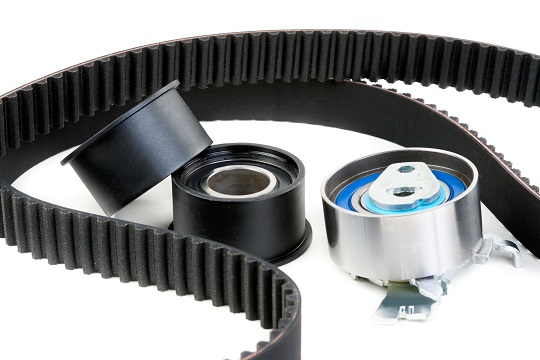We work hard to protect our vehicles and to keep them maintained. However, while we maintain our tires, engines, and transmissions, the timing belt is often overlooked. Knowing when to replace the timing belt on your vehicle is very important, and a failure of the timing belt can turn into a major problem.
Replacement of the timing belt is an essential service operation which every car owner needs to be aware of. To best understand why the timing belt is so important and, in return, what we can do to stop it from malfunctioning, we need to find out more about what it actually does and what the life expectancy of the timing belt is.
What Does The Timing Belt Do?
The timing belt in your car helps to make your engine work. Without it, the engine cannot run smoothly because the camshafts in the engine will not work well. A camshaft is a shaft in your engine that controls the intake and exhaust valves, which allows air in to create combustion and vents the exhaust. A properly running timing belt is essential in this process.
When To Replace The Timing Belt
When figuring out when to replace the timing belt, find out if you have an “interference” or “non-interference” engine. Interference engines have limited space between all the valves and pistons; non-interference engines are more spacious. Because an interference engine has such a small space between the pistons and the valves, any break in the belt can cause a huge problem and can ruin the entire engine. These timing belts need to be changed more often. Because a non-interference engine has more space, a break in the belt is usually not as damaging. However, in both types of engines, timing belt failure will stall the engine and it will not start again without major repair.
Fortunately, timing belt failure can be easily prevented with care and maintenance.
1. Check the owner’s manual to see when to replace the timing belt in your vehicle.
2. Check the last time the belt was changed. A general guideline is that the timing belt should be changed every 60,000 to 80,000 miles.
3. If your timing belt is reaching the point when it should be changed, or if a change is overdue, take your vehicle to a certified mechanic. All timing belt service intervals should be followed carefully to protect your vehicle and to protect you.
Find A Mechanic
To find out more information about auto repair and protecting your vehicle, find a quality mechanic near you. TalkLocal will connect you with up to three mechanics in your area, so you can get the help you need, when you need it.











